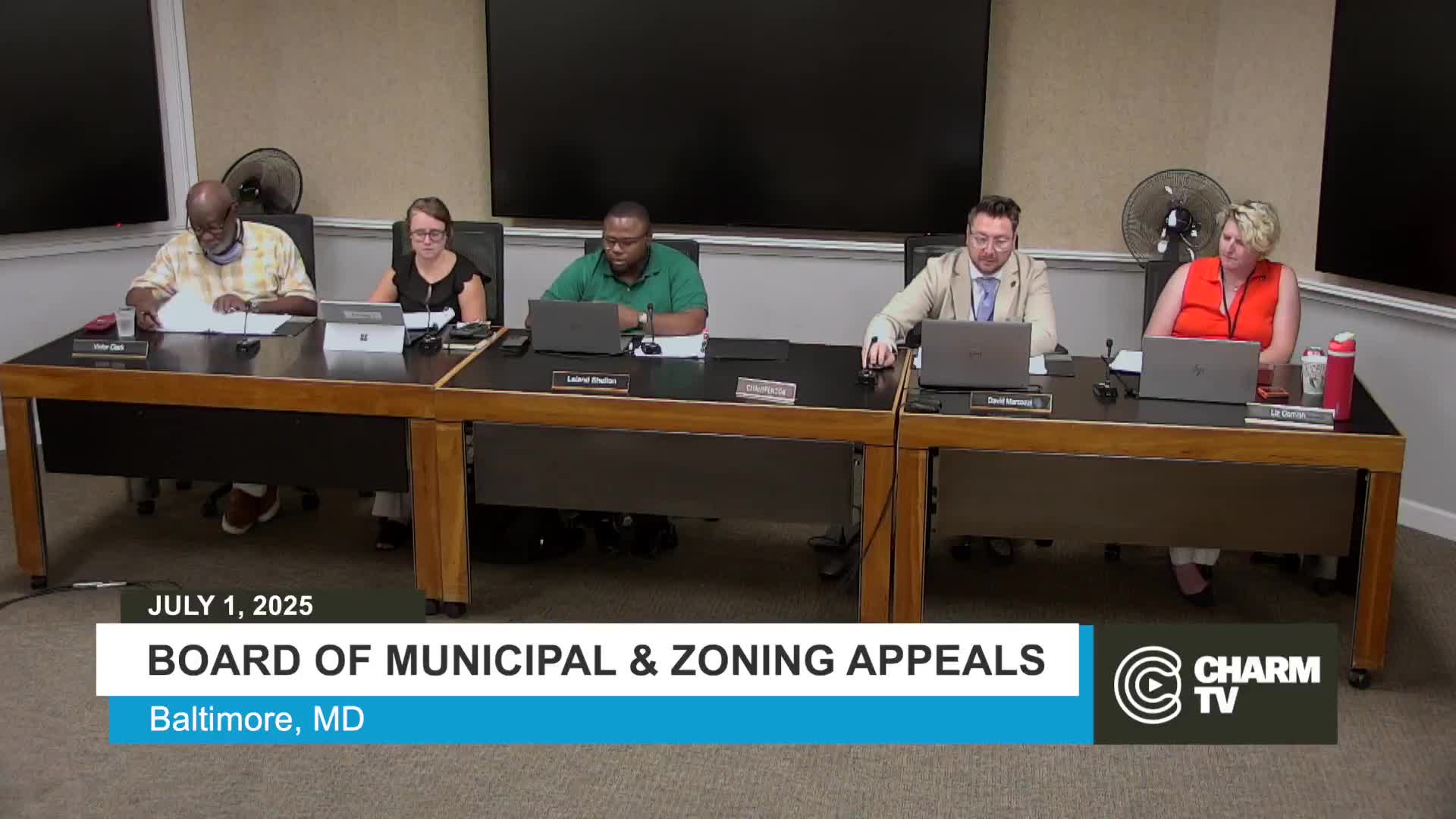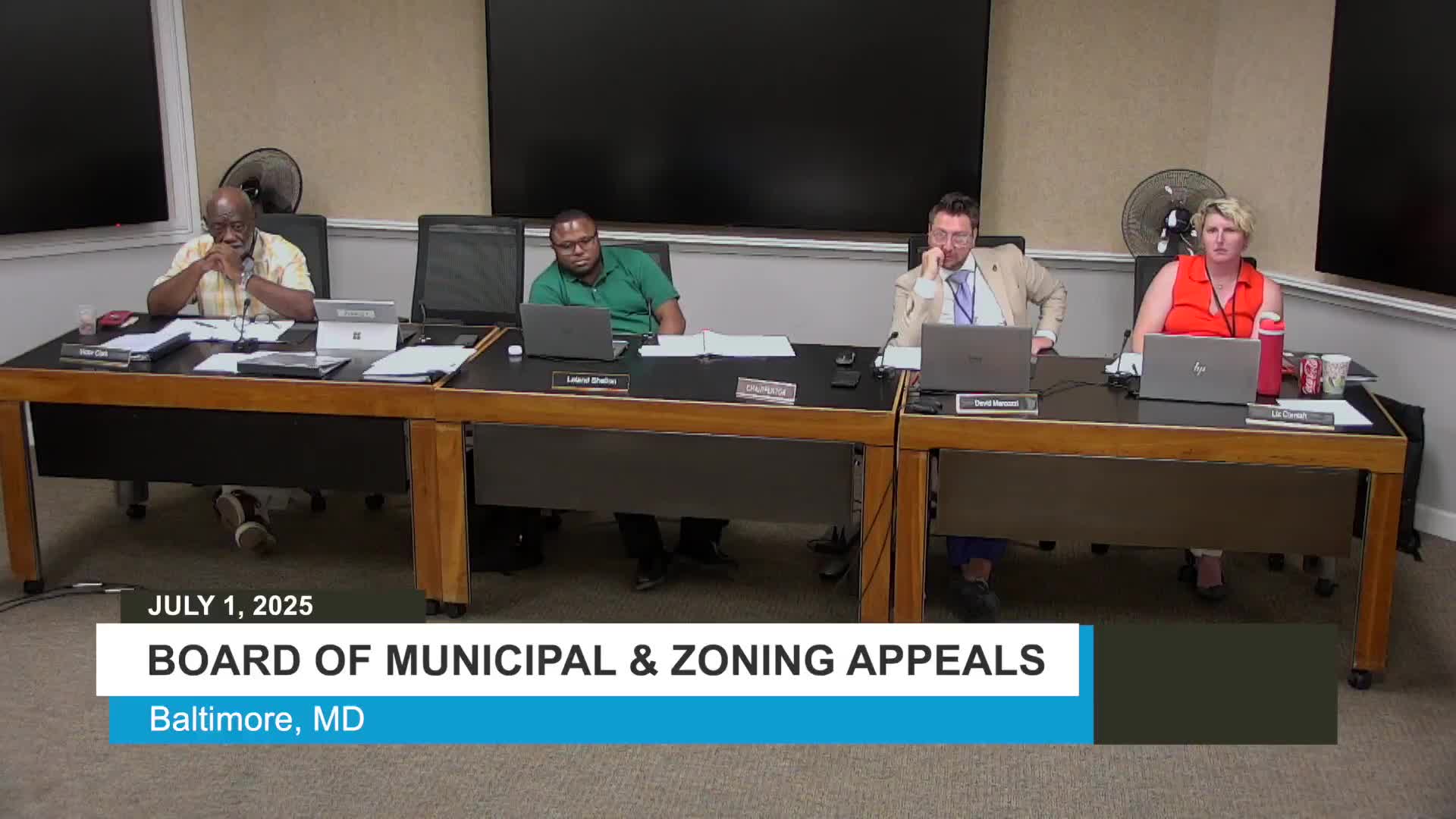Article not found
This article is no longer available. But don't worry—we've gathered other articles that discuss the same topic.

BMZA approves Bright Star Wellness clinic with conditions after contentious Pig Town hearing

BMZA denies corner-yard fence variance at Parkmont Avenue; owner told to choose by-right options

Board OKs expansion of home daycare at Hamilton Avenue to 12 children; neighbors raised traffic concerns

